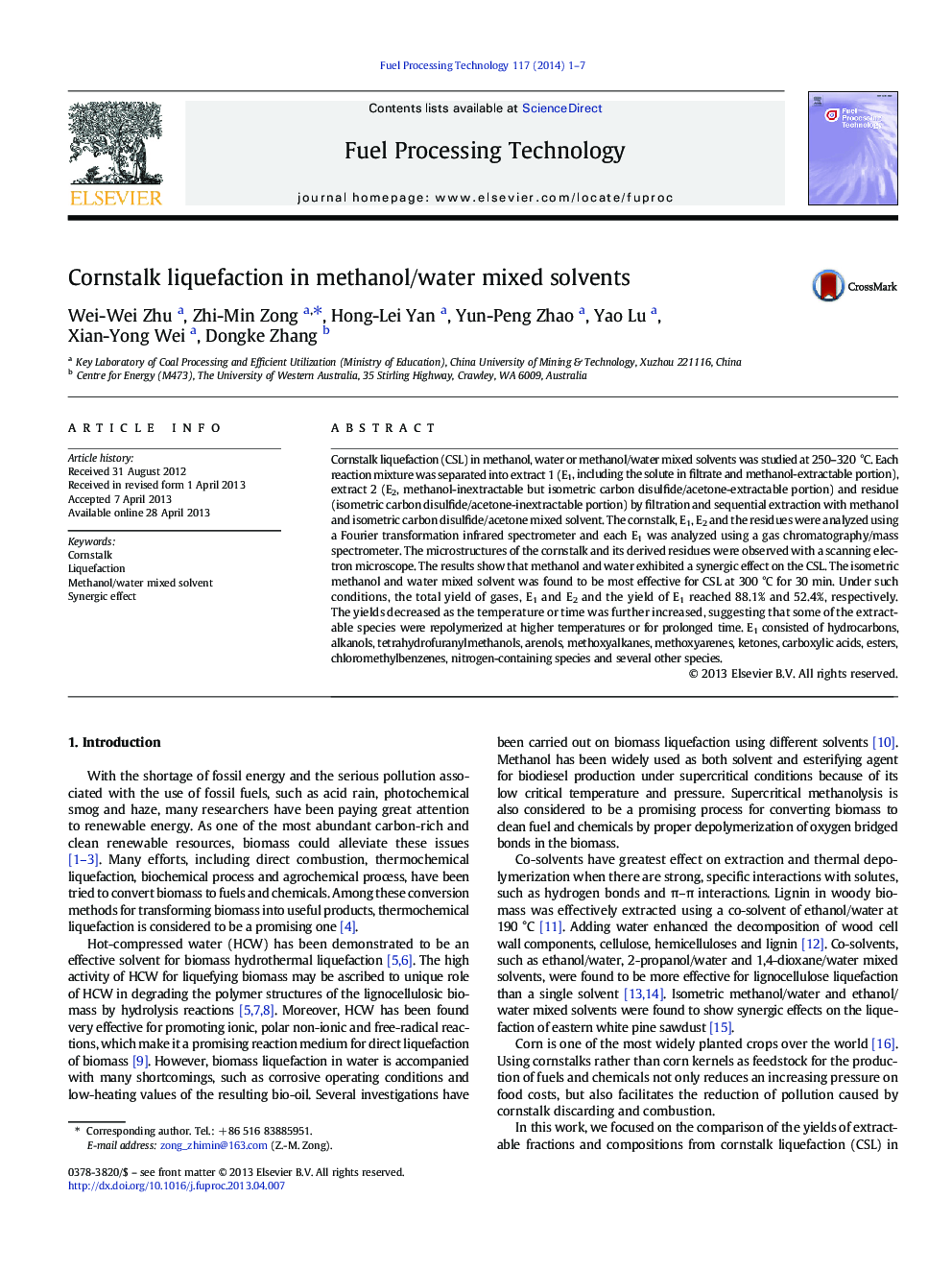| Article ID | Journal | Published Year | Pages | File Type |
|---|---|---|---|---|
| 209944 | Fuel Processing Technology | 2014 | 7 Pages |
•Optimum conditions for CSL are in isometric methanol/water at 300 °C for 30 min.•CSL includes esterification/methanolysis and hydrolysis.•The compositions of ECs can be controlled by changing methanol to water ratio.
Cornstalk liquefaction (CSL) in methanol, water or methanol/water mixed solvents was studied at 250–320 °C. Each reaction mixture was separated into extract 1 (E1, including the solute in filtrate and methanol-extractable portion), extract 2 (E2, methanol-inextractable but isometric carbon disulfide/acetone-extractable portion) and residue (isometric carbon disulfide/acetone-inextractable portion) by filtration and sequential extraction with methanol and isometric carbon disulfide/acetone mixed solvent. The cornstalk, E1, E2 and the residues were analyzed using a Fourier transformation infrared spectrometer and each E1 was analyzed using a gas chromatography/mass spectrometer. The microstructures of the cornstalk and its derived residues were observed with a scanning electron microscope. The results show that methanol and water exhibited a synergic effect on the CSL. The isometric methanol and water mixed solvent was found to be most effective for CSL at 300 °C for 30 min. Under such conditions, the total yield of gases, E1 and E2 and the yield of E1 reached 88.1% and 52.4%, respectively. The yields decreased as the temperature or time was further increased, suggesting that some of the extractable species were repolymerized at higher temperatures or for prolonged time. E1 consisted of hydrocarbons, alkanols, tetrahydrofuranylmethanols, arenols, methoxyalkanes, methoxyarenes, ketones, carboxylic acids, esters, chloromethylbenzenes, nitrogen-containing species and several other species.
